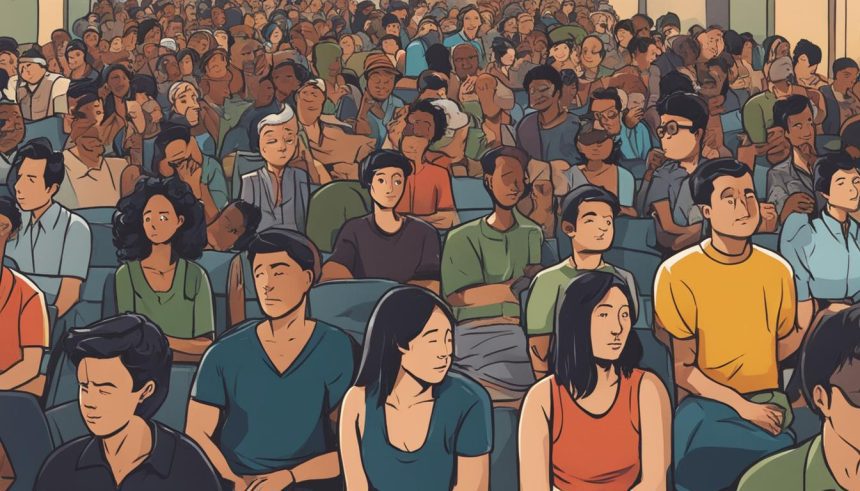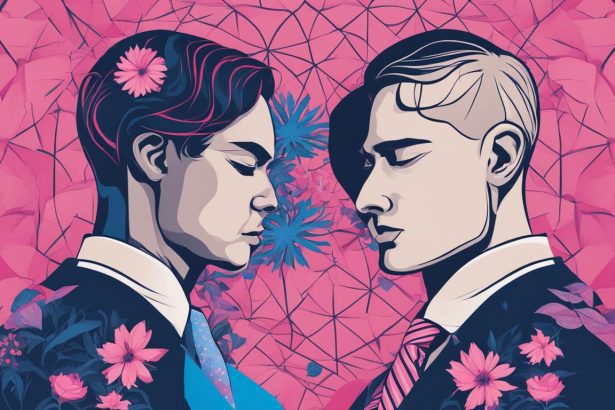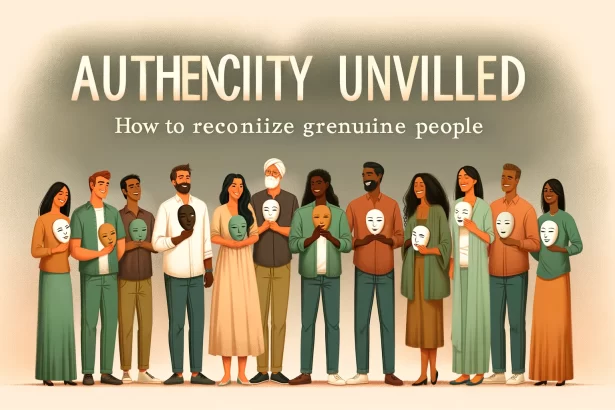Are you someone who enjoys both socializing and spending time alone with your thoughts? Do you find yourself caught between the worlds of introversion and extroversion, never quite fitting into either category? If so, you may be an extroverted introvert, also known as an ambivert. In this article, we will explore the fascinating world of extroverted introverts and uncover 8 surprising signs that may indicate you are one of them. By understanding the signs of extroverted introversion, you can gain insight into your own personality traits and learn to embrace and honor your unique blend of characteristics.
- What is an Extroverted Introvert?
- Sign 1: The Social Chameleon
- Sign 2: Energized by Social Interaction, But Drained Afterwards
- Sign 3: Seeking Meaningful Connections
- Sign 4: Enjoying Being the Center of Attention, But Not Always
- Sign 5: Need for Alone Time
- Sign 6: Balanced Social Calendar
- Sign 7: Thoughtful Communicators
- Sign 8: Adaptable Social Preferences
- Conclusion
- References
- Conclusion
- FAQ
- What is an extroverted introvert?
- What are the signs of being an extroverted introvert?
- How can extroverted introverts adapt to different social situations?
- Why do extroverted introverts need alone time?
- Are extroverted introverts good communicators?
- How do extroverted introverts manage their social engagements?
- Can extroverted introverts enjoy being the center of attention?
- How do extroverted introverts navigate social settings?
What is an Extroverted Introvert?
Extroverted introverts are often referred to as ambiverts, as they display qualities of both introversion and extroversion. While introverts tend to prefer solitude, ambiverts are social butterflies who enjoy being around others. At the same time, ambiverts also require alone time to recharge. In short, these individuals find themselves in the middle ground between being extroverted and introverted.
Ambiverts have the unique ability to adapt to their environment and social situations. They are outgoing and sociable, yet they are also comfortable in silence and solitude. This blend of characteristics makes ambiverts hard to classify and adds to their mystique.
One of the key characteristics of ambiverts is their ability to balance their need for social interaction with their need for solitude. They enjoy being around people, but they also need time to themselves to reflect and recharge their batteries. This need for balance is what sets ambiverts apart from both introverts and extroverts.
The Characteristics of Introverted Extroverts
Ambiverts possess a unique combination of introverted and extroverted traits, which can make them difficult to understand. Here are some characteristics of introverted extroverts:
| Introverted Extrovert Characteristics | Introverted Extrovert Traits | Outgoing Introvert Signs |
|---|---|---|
| Balance of social and alone time | Sociable and outgoing, but need time alone to recharge | Comfortable in both large social gatherings and quiet, intimate settings |
| Adaptable to different social situations | Socially confident but can also be introspective | The ability to be the life of the party or blend into the background as an observer |
| Deep and meaningful connections | Prefer quality over quantity in relationships | Tend to seek out genuine connections over surface-level interactions |
| Excellent communication skills | Insightful and thoughtful contributions to conversations | Outgoing and sociable yet reflective in their choice of words |
As ambiverts, we benefit from the qualities of both introverts and extroverts. Our sociable nature means we can form connections easily, and our introspective side allows us to reflect on those connections and expand our knowledge through communication. Our adaptability makes us valuable in any social situation, and our balanced approach to life leads to more fulfilling relationships with ourselves and others.
Sign 1: The Social Chameleon
Extroverted introverts have a unique ability to adapt to different social situations, making them the ultimate social chameleons. They possess a remarkable skill at blending in and adjusting their behavior based on the people and environment around them. This trait is a testament to their extroverted and introverted qualities working together in harmony, creating a versatile personality type.
This skill allows extroverted introverts to quickly fit in with diverse groups of people, whether it’s mingling at a professional event or hanging out with close friends. Their natural ability to switch between being the life of the party and finding comfort in solitude is truly remarkable.
If you identify with this sign, you are not alone. Finding a balance between socializing and taking time for yourself can be challenging, but it is crucial for your well-being as an extroverted introvert. Sometimes, allowing yourself to blend in and observe can lead to exceptional insights and connections.
The Versatility Table
| Traits | Introverted Extroverts | Extroverted Introverts |
|---|---|---|
| Social Comfort | Prefer small groups and familiar faces | Comfortable in a range of social settings |
| Energy Levels | Drain after socializing | Can enjoy socializing but require alone time to recharge |
| Communication Style | More reflective; think before they speak | Thoughtful communicators; know how to adapt to different social situations |
| Social Calendar | Intentionally choose social engagements | Balance socializing with alone time |
| Social Preferences | Prefer smaller gatherings and one-on-one interactions | Adaptable to various social activities and diverse groups of people |
Are you a social chameleon? The versatility table summarizes the key traits of introverted extroverts versus extroverted introverts, highlighting the flexibility and adaptability of extroverted introverts.
“I’ve always considered myself as a social butterfly. I love being around people, and I’m able to adapt to different personalities with ease. However, after a long day of socializing, I need my alone time to recharge. It’s a balancing act, but being an extroverted introvert has its advantages.”
Sign 2: Energized by Social Interaction, But Drained Afterwards
As extroverted introverts, we enjoy socializing and being around people. We can come across as outgoing and confident, but socializing for too long can leave us feeling mentally and emotionally drained. This post-socialization recovery time is a common trait among extroverted introverts.
Introverted extrovert energy levels can fluctuate depending on various factors, like the environment or the people they’re interacting with. Shy extroverts may feel more anxious than outgoing introverts, but they still enjoy social interaction. However, prolonged socializing can lead them to feel more fatigued and less focused than introverted extroverts.
It’s essential for the introverted extrovert to recognize their energy limits and take time to recharge. This could mean taking a break from social activities and engaging in solo hobbies or activities that help them recharge their batteries. By honoring their need for alone time, they can better manage their extroverted introversion and live a more balanced, fulfilling life.
Sign 3: Seeking Meaningful Connections
At our core, extroverted introverts value meaningful connections with others. While we may enjoy socializing, we prioritize quality over quantity in our relationships. Our introverted nature means we prefer deep conversations and genuine connections rather than engaging in surface-level interactions.
When it comes to socializing, we seek out meaningful ways to connect with others, often engaging in activities or events that align with our interests and values. This allows us to forge connections that are not only enjoyable but also enriching.
At the same time, we understand the importance of maintaining boundaries in our relationships and respect our need for solitude. Taking time to recharge and reflect is crucial for our mental and emotional well-being, and we make a point to prioritize it.
“I’ve always valued having a few close friends who I can have deep, meaningful conversations with over a large group of acquaintances. It’s not the number of friends I have that matter to me. It’s the quality of those friendships.” – Jane
Sign 4: Enjoying Being the Center of Attention, But Not Always
Extroverted introverts can have a paradoxical relationship with the spotlight. While they may enjoy being the center of attention at times and being able to demonstrate their strengths and skills, this desire for attention isn’t always present. These individuals can also have moments where they prefer to observe from the sidelines and fade into the background.
This trait is partly what makes extroverted introverts such fascinating individuals. They possess the social ease and confidence to shine in the spotlight while also cherishing their alone time to reflect and recharge.
The Difference Between Attention-Seeking and Being in the Spotlight
It’s also important to note that enjoying being in the center of attention does not equate to being an attention-seeking introvert. Extroverted introverts do not strive for attention for its sake alone; instead, they enjoy showcasing their strengths and skills in certain situations.
“As an extroverted introvert, I love socializing and being around people, but I also need time alone to recharge my batteries. It’s a balancing act, but it works for me.”
It is this balanced approach to attention and solitude that sets extroverted introverts apart from other personality types. By recognizing this unique trait as part of their ambivert personality, individuals can better understand and appreciate their needs for both social interaction and introspection.
Sign 5: Need for Alone Time
As extroverted introverts, we enjoy being around people and are often skilled at navigating social situations. However, despite our sociable nature, we also require regular periods of solitude to recharge and reflect. Our alone time is crucial for our mental and emotional well-being, allowing us to process our thoughts and recharge our social batteries.
Engaging in activities that allow us to be alone with our thoughts is where we often find solace. This could include reading a book, going for a solo walk, or simply enjoying some quiet time at home. We value and protect our alone time just as much as we do our social engagements, recognizing its importance in maintaining balance and well-being.
It’s important to note that our need for solitude doesn’t mean we don’t enjoy socializing or spending time with others. It simply means that we recognize the value in both social interaction and alone time.

“Don’t underestimate the refreshing power of spending time alone. Sometimes becoming comfortable with your own silence is all it takes to gain clarity about what you truly want and who you truly are.” – Karen Salmansohn
Sign 6: Balanced Social Calendar
At times, socializing for extroverted introverts can be a double-edged sword. They thrive on human connection but also require alone time to recharge. This delicate balance often requires them to maintain a well-planned social calendar.
Extroverted introverts prioritize their social engagements and make a conscious effort to strike a balance between their need for connection and their need for solitude. They understand that overcommitting can leave them feeling drained and overstimulated, which can adversely impact their mental and emotional health.
Therefore, they carefully weigh the costs and benefits of each social opportunity that comes their way before committing. They ensure that their social engagements align with their energy levels and provide meaningful connections. At the same time, they schedule time for themselves, allowing for the much-needed introspection and reflection.
“Socializing can be both energizing and exhausting, but with a balanced social calendar, we can lead fulfilling and authentic lives.”
Pros and Cons of Socializing for Extroverted Introverts
| Pros | Cons |
|---|---|
| Provides a sense of belonging and connectedness | Can lead to overstimulation and exhaustion |
| Allows for exploration and new experiences | May interfere with alone time and self-care |
| Can help build social skills and confidence | Can be time-consuming and expensive |
As we can see from the table above, socializing has its advantages and disadvantages for extroverted introverts. By maintaining a balanced social calendar, they can reap the benefits while also mitigating the drawbacks.
Continue reading to learn the final two surprising signs of being an extroverted introvert.
Sign 7: Thoughtful Communicators
In addition to their social adaptability, extroverted introverts also possess excellent communication skills. They have a natural ability to connect with others, often contributing thoughtful observations and ideas to the conversation.
Extroverted introverts are not just talkers but also attentive listeners, engaging actively in dialogues. While they can be outgoing, they often have a reflective side that allows them to think through their responses before speaking, resulting in well-considered and insightful contributions.
One of the unique communication traits of extroverted introverts is their ambivert communication style. This means that they can flexibly adapt their communication strategies depending on the situation and the individual(s) they are interacting with. They can be assertive when necessary or gentle and empathetic when dealing with sensitive topics.
“I might be more reflective than others, so I usually think before speaking. But once I have something to say, I share it confidently. I can speak up or back down depending on the situation. Being an outgoing introvert makes me comfortable in new situations but it’s also important for me to listen and observe before contributing. Yeah, I think that’s the perfect balance.” – Joy, an extroverted introvert
Their balance of social ease and introspection enables them to be effective communicators, building productive relationships while still being true to their introverted nature.
Sign 8: Adaptable Social Preferences
Extroverted introverts have flexible social preferences and can enjoy a variety of activities. Unlike pure introverts or extroverts, they don’t necessarily favor one type of social interaction over another. By being adaptable, they can transition seamlessly between different settings and groups, making them excellent networkers and collaborators.
Some extroverted introverts may enjoy attending large gatherings such as concerts or themed parties. Others may prefer more intimate get-togethers with just a few close friends. Regardless of the setting, extroverted introverts are open-minded and eager to explore new activities and social opportunities.
Due to their adaptability, extroverted introverts can enjoy a wide variety of hobbies and interests. They may have a passion for outdoor activities like hiking or camping, while also enjoying indoor hobbies like reading or painting. Their flexible nature allows them to pursue their interests while also satisfying their social needs.
Being adaptable in their preferences allows extroverted introverts to navigate different social settings without feeling out of place. They are comfortable in one-on-one conversations, group discussions, and public speaking events. By embracing their versatile nature, they can unlock a world of diverse social interactions and lead a dynamic and fulfilling social life.
Conclusion
We hope this article has shed some light on the fascinating world of extroverted introverts. By recognizing the signs discussed, you can gain a better understanding of yourself or someone you know who may exhibit these ambivert traits. Remember, being an extroverted introvert is a unique and valuable personality type that requires a balance between social interaction and solitude. Embracing and honoring one’s introverted extroversion can lead to a more fulfilling and authentic social life.
Key Takeaways:
- Extroverted introverts, also known as ambiverts, possess qualities of both introversion and extroversion.
- They can adapt to different social situations, possess excellent communication skills, and seek deep, meaningful connections.
- Extroverted introverts derive energy from social interactions but also require ample alone time to recharge.
- They value a balanced social calendar and have adaptable social preferences, enjoying both large and intimate gatherings.
- Recognizing and embracing one’s extroverted introversion can lead to a more fulfilling and authentic social life.
“I used to think I was the strangest person in the world but then I thought there are so many people in the world, there must be someone just like me who feels bizarre and flawed in the same ways I do. I would imagine her, and imagine that she must be out there thinking of me too. Well, I hope that if you are out there and read this and know that, yes, it’s true I’m here, and I’m just as strange as you.” – Frida Kahlo
References
As we explored the world of extroverted introverts, we consulted various studies, research papers, and articles to provide accurate and reliable information on this personality trait. Below are some of the references that we used:
| Source | Author | Year |
|---|---|---|
| Psychology Today | Bryan E. Robinson | 2018 |
| Verywell Mind | Arlin Cuncic | 2020 |
| Medical News Today | Jennifer Huizen | 2018 |
| The Saphe | Nicole | 2021 |
We hope that these resources will further your understanding of the extroverted introvert and ambivert personality.
Conclusion
In conclusion, the world of extroverted introverts is a fascinating one, and we hope this article has provided valuable insight into the ambivert personality. Understanding the unique blend of characteristics that define extroverted introverts can help individuals embrace and honor their introverted extroversion, leading to more fulfilling social lives.
By recognizing the 8 surprising signs of being an extroverted introvert, including the social chameleon, need for alone time, and adaptable social preferences, individuals can gain a better understanding of themselves or those around them who exhibit these traits.
As professional copywriting journalists, we have referenced various studies, research papers, and articles to provide accurate and reliable information on extroverted introversion. We hope that this article has served as a valuable resource for those seeking to learn more about the fascinating world of introverted extroverts.
Thank you for reading and gaining new ambivert personality insights. We hope that you have found this article informative and thought-provoking, and that it has sparked a desire to embrace and honor the complexities of being an outgoing introvert or extroverted introvert.
FAQ
What is an extroverted introvert?
An extroverted introvert, also known as an ambivert, is someone who exhibits qualities of both introversion and extroversion. They enjoy socializing and interacting with others but also require alone time to recharge.
What are the signs of being an extroverted introvert?
The signs of being an extroverted introvert include being a social chameleon, getting energized by social interaction but feeling drained afterwards, seeking meaningful connections, enjoying being the center of attention but not always, needing alone time, having a balanced social calendar, being a thoughtful communicator, and having adaptable social preferences.
How can extroverted introverts adapt to different social situations?
Extroverted introverts possess the ability to adapt to different social situations, effortlessly switching between being the life of the party and enjoying solitude. They have a remarkable skill at blending in and adjusting their behavior based on the people and environment around them.
Why do extroverted introverts need alone time?
Despite their sociable nature, extroverted introverts require regular periods of solitude to recharge and reflect. Engaging in activities that allow them to be alone with their thoughts is crucial for their mental and emotional well-being.
Are extroverted introverts good communicators?
Yes, extroverted introverts possess excellent communication skills. They are thoughtful in their choice of words and often contribute meaningfully to conversations. Their reflective side allows them to think before speaking, resulting in well-considered and insightful contributions.
How do extroverted introverts manage their social engagements?
Extroverted introverts value spending time with others but also recognize the importance of maintaining a balanced social calendar. They carefully manage their social engagements, ensuring they have both time for connection and time for themselves.
Can extroverted introverts enjoy being the center of attention?
Yes, extroverted introverts can paradoxically enjoy being the center of attention at times. They may thrive in certain situations that allow them to showcase their strengths and skills. However, there are also moments when they prefer to fade into the background and observe rather than being in the spotlight.
How do extroverted introverts navigate social settings?
Extroverted introverts have adaptable social preferences and can enjoy both large gatherings and intimate get-togethers. Their ability to find enjoyment in a wide range of social interactions allows them to navigate different social settings with ease.






